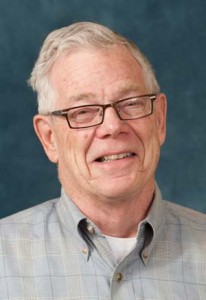Developed by Katie Brown in coordination with William Zimmerman.
This post is part of a series that explores how Center for Political Studies (CPS) researchers came to their work.
 As an undergraduate at Swarthmore College, William “Bill” Zimmerman studied under Kenneth Waltz, a key figure in the development of the field of International Relations. Zimmerman then went on to complete his Ph.D. at Columbia University.
As an undergraduate at Swarthmore College, William “Bill” Zimmerman studied under Kenneth Waltz, a key figure in the development of the field of International Relations. Zimmerman then went on to complete his Ph.D. at Columbia University.
Professor Zimmerman’s first book Soviet Perspectives on International Relations 1956-1967, based on his dissertation, follows the structure of Waltz’s book Man, the State, and War. But instead of talking about philosophers, Zimmerman’s book considers the emergence of International Relations as a discipline in the U.S.S.R.
With his first book in hand, Zimmerman felt moved to do something different. He especially wanted to journey where he could both do his research and his family could accompany him. In 1970, the U.S.S.R. was not an option. Zimmerman secured a Fulbright Fellowship and ventured to Yugoslavia with his family in tow. Around this time, he also became involved with a research project focused on Jews who migrated from the U.S.S.R. This research project became Zimmerman’s initial foray into survey research.
Then, in the late 1980s, the world changed. Mikhail Gorbachev became President of the U.S.S.R. and ushered in an era of openness with glasnost and perestroika. The U.S.S.R. collapsed. And it was now possible to conduct survey research in Russia. “The impossible,” as Zimmerman puts it, “was now possible.” And so he set out to conduct surveys in Russia. What was originally intended to be a single survey in 1993 was expanded and developed into a six wave panel study of Russian elites and conducted through 2012.
Over his illustrious career, Zimmerman has written or edited eight books and published more than 60 journal articles and book chapters. Zimmerman is now retired, holding the title of Research Professor Emeritus at the Center for Political studies. He jokes that he is “basically doing the same thing now, just without getting paid.” He especially appreciates his wife’s support in this regard, chuckling while stating that “she knew what she was getting into.” Looking back on his career, Zimmerman can see how his career path changed with the times. He started out as “the guy that studied Soviet foreign policy from afar” and then became “the guy doing surveys of Russian elites in Moscow.”

